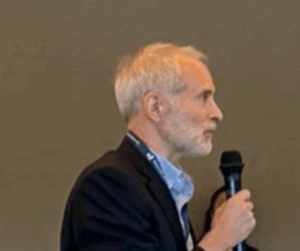A Shareholder Proposal That is Certain to be Approved! - While Improving Japan's Entire Stock Market

Constant Complaints
For decades, Japanese and foreign investors have complained about two things:
(1) The fact that most annual general meetings (AGMs) are concentrated in June, with more than 80% occurring in the same week and a full 25% on the same day. This makes it extremely difficult for investors to prepare adequately or attend many shareholder meetings.
(2) Almost all Japanese companies file their most important disclosure document, their “yuho” annual securities reports (the equivalent of a U.S. 10-K), after the shareholders’ meeting or (at best) just before. This is the complete reverse of what the timing should be. As a result, investors are unable to obtain and digest essential information prior to the shareholders meeting, and can only do so after the AGM.
Last June, at the government’s request, a larger than usual number of companies than usual filed their paid-in reports prior to the general shareholders’ meeting, but most of these were submitted a week or less before the meeting. This is very limited progress, as most institutional investors had already voted at that point. And of course the reality is that it takes more than a few days to analyze these reports, which can be more than 200 pages long.
However, this Problem is Not Difficult to Solve!
Last June, Soracom and Advantest showed their shareholders the respect they deserve, by amending their articles of incorporation to allow shareholder meetings to be held after the end of June, for example, in July or August.
This will allow shareholders of both companies to avoid the “shareholder meeting concentration week” problem, since shareholders of both companies will receive the yuho annual financial report at least one month before the general meeting, and that meeting will be held at a time when there are not many other shareholder meetings of other companies.
This “solution” is quite simple. By law, a general shareholders’ meeting must be held within three months of the “record date” for determining voting rights. Therefore, the two companies changed their Articles so that the record date for voting rights is stipulated to be a date that comes later than March 31st. Soracom and Advantest set this date to April 30 and May 15, respectively.
Very High approval rate at both AGMs
At both companies’ general shareholders’ meetings, the approval rate for proposals to amend the articles of incorporation was very high. At Soracom’ s AGM, the resolution was approved by 99.71% of voting shareholders, and at Advantest’s, by 99.78%.
This is an extremely high approval rate – one that often not obtained even by very capable and successful CEOs who are being reappointed.
Excellent Opportunity for Shareholder Proposals that can Succeed
Usually, when an activist fund or other party makes a shareholder proposal to change the articles of incorporation, the best it can get is a 20-30% approval rate, which gives the proposal only a sort of symbolic significance. Such a level is “symbolic” in the sense that an amendment to the Articles of Incorporation requires approval by two-thirds of voting shareholders, but even 20-30% is considered high enough to be newsworthy and perhaps even have some sort of impact on the activist’s future dialogue with the company.
In this case, however, if an institutional investor or activist fund were to propose a change in the Articles of Incorporation similar to that done by Soracom and Advantest, there is a very good chance that the resolution would pass. This is because dissatisfaction with current AGM scheduling practices is a market-wide issue that institutional investors and investor groups have been up in arms about for years. Even the government is getting into the act.
A further constructive suggestion would be to propose a change to the Articles requiring annual disclosure of director training and governance-related training (legal, governance, finance, etc.) provided to directors, executive officers, and directors of the company and its major subsidiaries in the previous year. Currently, many companies do little to ensure that the sort of training and “refreshment” required by the Corporate Governance Code is given. A two-hour lecture by a lawyer or well-known figure every few years is deemed sufficient, for instance. Moreover, investors have no way of knowing whether a particular firm took any significant action in this area or not.
As a result, scandals continue to occur and average price-book ratios remain stagnant at around 1.4x despite the TSE’s cost of capital policy. When it comes to training and investing in “human capital”, actions are far more important than abstract “policy” statements. The only way to encourage action is to require disclosure of what was actually done in the previous year.
Because these two proposals are in the best interests of all shareholders, the proposer would be regarded as a constructive, reasonable shareholder.
Very Difficult to Oppose
What would make these two proposals so effective, and likely to succeed, is that they are not only beneficial to both the corporation and its shareholders, but also very difficult to oppose. It would be very difficult for a company to find a reason to oppose the first proposal, and if it also opposes the second proposal, it would seem to also have little regard for the interests of shareholders or investment in the most valuable group within its human capital, executives and the board. To ignore the interests of shareholder to this extent, on two issues at once, would likely attract criticism and negative attention.
I believe that most reputable companies would almost certainly accept at least the first proposal, turning it into a “company proposal” that would be certain to be be approved.
Nicholas Benes
September 22, 2025
